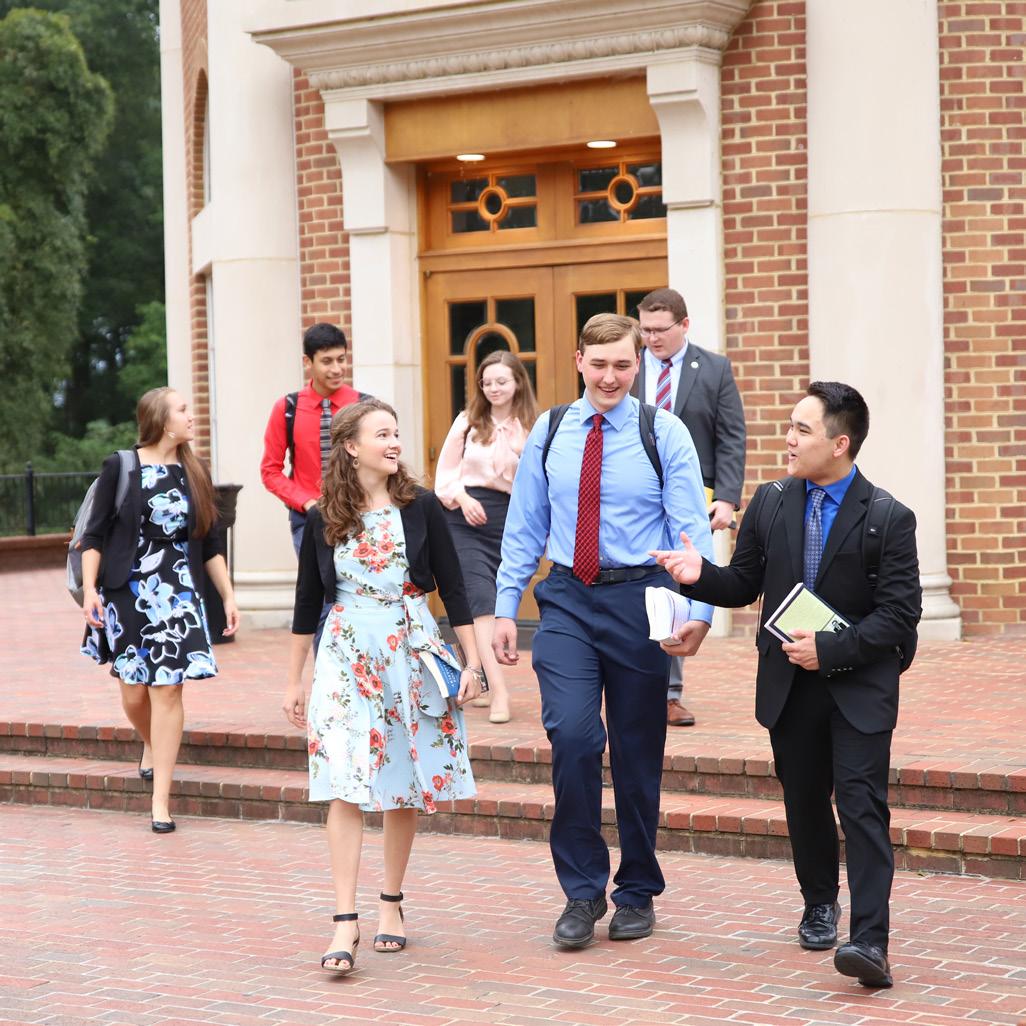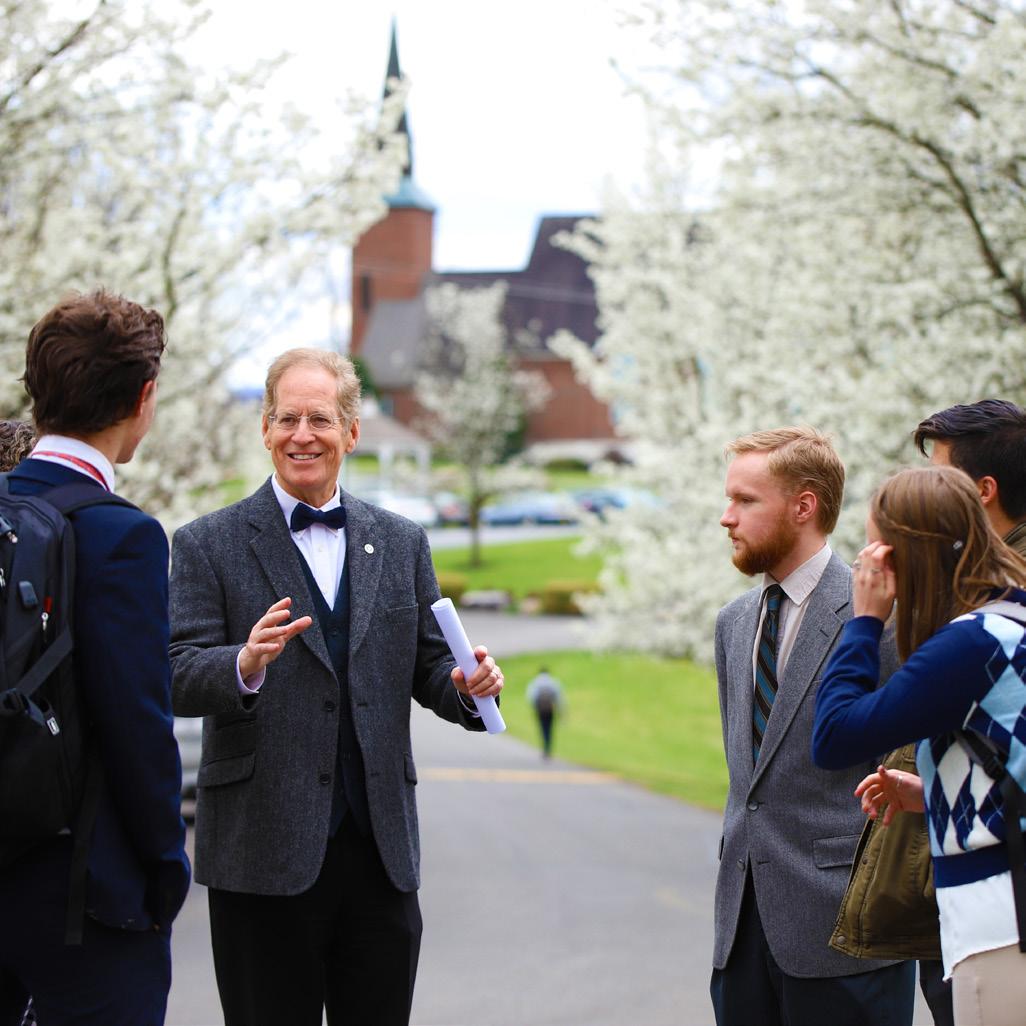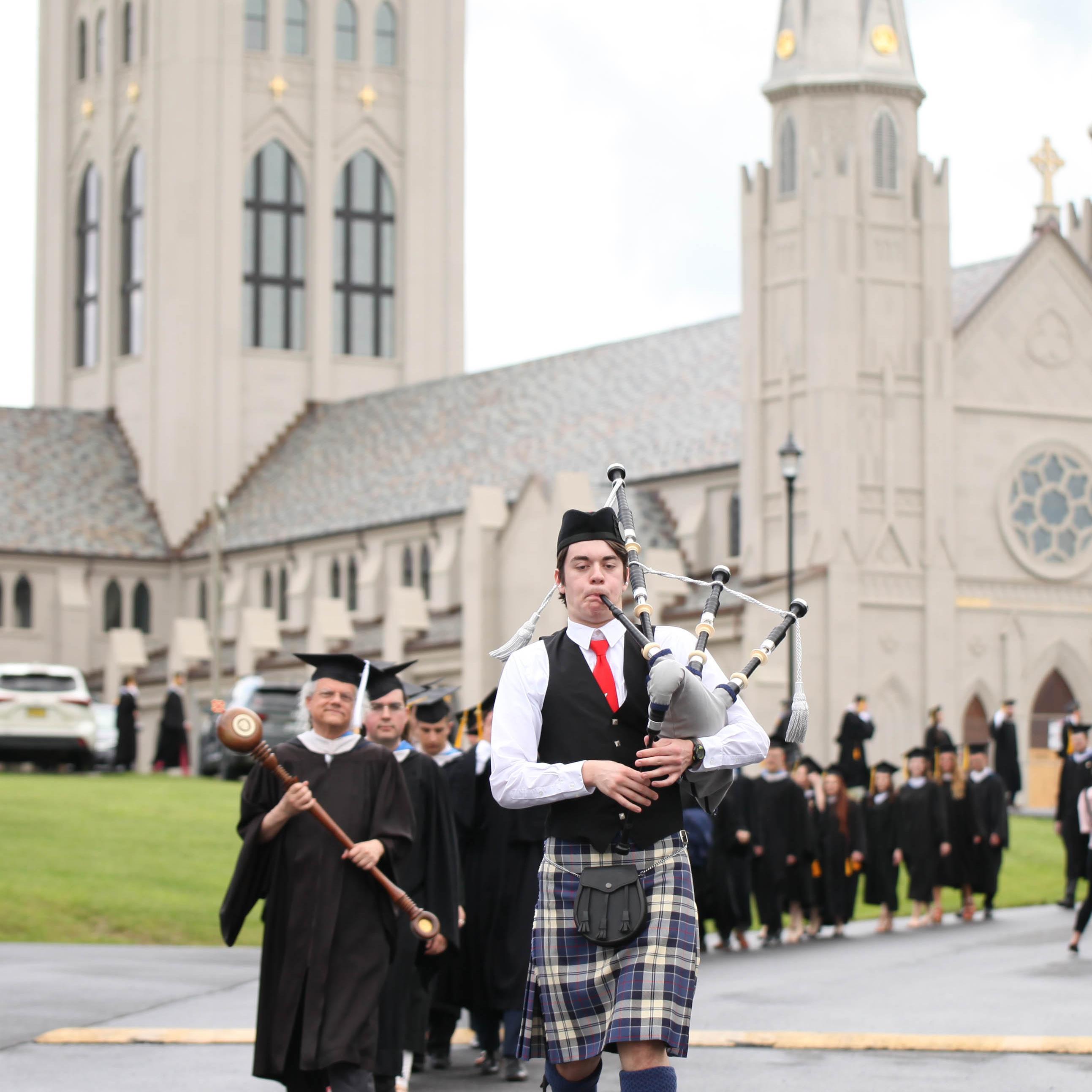
4 minute read
A CRISIS IN EDUCATION
the cultural revolution that swept across the United States in the late 1960s struck a devastating blow to Catholic higher education. The damage became evident with the Land O’Lakes statement in 1967, in which Catholic universities formally broke their ties with the teaching Church and repudiated their duty of obedience to her. There followed a wholesale loss of Catholic identity in these institutions. Not only were crucifixes stripped from classrooms, but the foundations of Western civilization were stripped from the curricula. The very existence of objective truth and absolute moral principles was denied, explicitly or implicitly.
There was no longer a place in these transformed universities for what had always been the primary purpose of Catholic education: to lead young minds out of narrow perspectives into the world of known truth under the guiding light of the Catholic Faith. Most especially, there was no longer a place for a sacred discipline that had the task of ordering and illuminating all other disciplines. This abandonment of the Queen of Sciences was defended in the name of intellectual “emancipation.” But the goal of Catholic education had never been to produce unthinking assent, nor to send students on an intellectual journey on which they would never reach a destination. The goal was, and should always be, to communicate a knowledge that furnishes reasons why and thus imparts to students a wisdom, both natural and supernatural, that enables them to make discerning critical judgments.
Grace does not destroy, but perfects nature; the teaching Church has always defended man’s ability to reason correctly about both the material and spiritual worlds, recognizing for both faith and reason a common source in Almighty God. Jesus Christ said: “I am the Way, the Truth, and the Life.” Divine Revelation gives order and purpose to teaching and to the learning process. Genuine liberal education begins in wonder and ends in wisdom, flowing from the knowledge and certitude of truth attained and possessed. When guided by the Catholic Faith, it liberates man from ignorance, error, and the forces of darkness that surround him in the postmodern secularized West.
Bereft of this vision, scornful of this tradition, and consumed by the desire to conform to contemporary society despite its intellectual chaos and spiritual apostasy, most “Catholic” universities today have abandoned or drastically cut back their core curricula. Theology has been replaced by “religious studies,” often with the Catholic Faith treated less fully than other religions, or presented by dissidents who reject essential doctrines. Often, no more than two courses in “religious studies” and/or two in philosophy are now required of the undergraduate. Other subjects are taught almost exactly as in the secular universities, even when their subject matter cries out for a Catholic orientation, as is the case with history, psychology, and the humanities in general.



To fill the void left by the abandonment of strong core requirements in philosophy and theology, Catholic universities have substituted courses in disciplines that tend to study human needs and behaviors without reference to higher truths or morality. They feed the dominant relativism and skepticism that, like cancers, devour and eventually destroy intellectual life.
Pope John Paul II, in his Apostolic Constitution Ex corde ecclesiae, called on the Catholic university to “consecrate itself without reserve to the cause of truth,” to distinguish itself by the “free search for the whole truth about nature, man, and God.” Only the Catholic university, the Holy Father declared, can give us a “universal humanism which is completely dedicated to the research of all aspects of truth in their essential connection with the Supreme Truth who is God.” Tragically, this great and beautiful document of guidance from the Vicar of Christ has been almost totally ignored by today’s Catholic universities in America.
With no God-centered core of humane studies to focus the university’s mission, today’s colleges have turned to senseless “diversification” and mindless growth. In the name of diversification, the genuine liberal arts have been replaced largely by mere vocational and professional training. There has been an endless proliferation of courses and majors, among which students are allowed to choose without guidance or purpose, with the inevitable result that most of them never even deal with the fundamental questions about God, man, and reality; never even encounter the most challenging works of Western civilization.
All these problems are exacerbated by the size of the modern university, which Russell Kirk happily named “Behemoth U.” The lack of personal guidance for the student, already distressingly evident in the abandonment of sensible parietal rules, becomes still more disastrous in the stultifying impersonality of a campus of thousands, where students are left to wallow in the worst of the “youth culture.” Furthermore, the deep wellsprings of Christian virtue, which should animate common courtesy between men and women, and civil decency between individuals of diverse backgrounds, have been replaced on most college campuses by the oppressive atmosphere of “political correctness”—the power politics of gender, race, and lifestyle.
To meet the challenge of this crisis and to offer a solution in keeping with the thousand-year-old tradition of the Church as university educator, Christendom College was established in 1977. The goal set for the college from the beginning was to provide a truly Catholic liberal education in fidelity to the Magisterium of the Catholic Church and thereby to prepare students for their role, as laity in Christ’s Church, of restoring all things in Christ.
The best way to develop the students’ intellectual gifts is through a liberal education, and the best way to prepare them to restore all things in Christ is to provide them with a Catholic liberal education by which they may learn to know and love the Truth. In this way, both the mind and the soul may be ordered toward the Way, the Truth, and the Life Who is Christ, our Lord and our God, our beginning and our end.
Ever since its founding, the college has been unwaveringly loyal to its founding purpose and actively responsive to the repeated calls of Pope Paul VI and Pope John Paul II for authentically Catholic colleges and universities. Pope John Paul II himself, speaking personally to its founder, called Christendom College “a great work for the Church.”
Christendom College is committed to maintaining its mission and preserving its fully Catholic identity, not only for the upcoming generation, but, God willing, for many more generations to come. E









